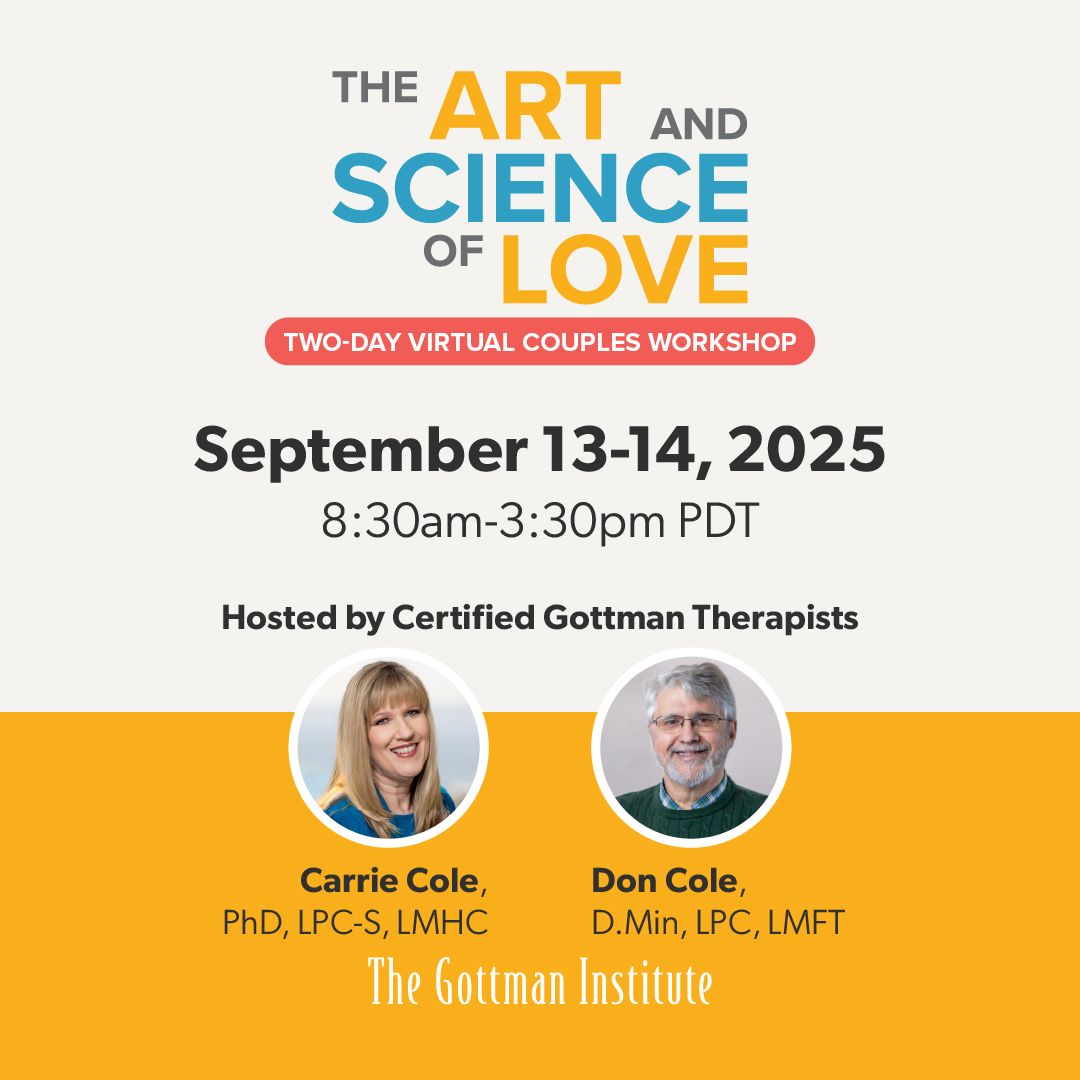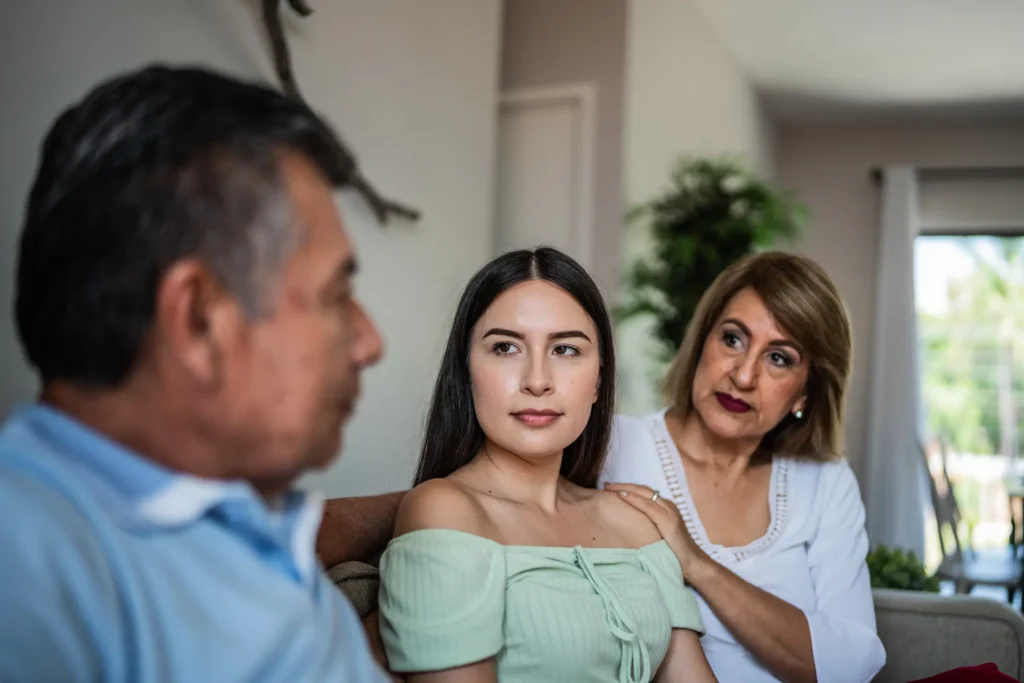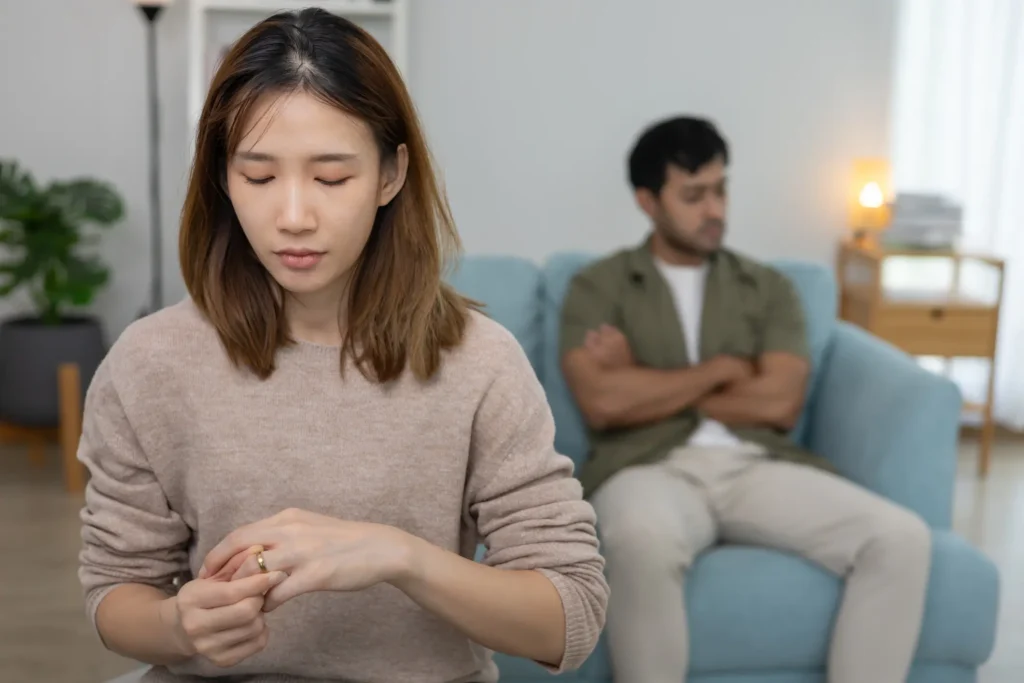When I meet with a new couple, I always ask: How do you self-soothe during and outside of
conflict? While some report having strategies for self soothing, many do not, and very few of my
couples report using any strategies during conflict discussions. When emotion regulation skills
aren’t used during conflict, many couples experience dysregulation. When we are dysregulated
our emotional intensity has increased, and we are having have difficulty bringing emotions back
down to a moderate level. When this happens we generally cannot effectively hear our partner,
misinterpretations rise, and our ability to communicate effectively goes out the window!
How fights can go without emotion regulation:
Partner 1: I felt really hurt yesterday when you didn’t return my phone call.
Partner 2: I already told you that I forgot because work was so overwhelming that day.
P1: I know, but I was still left waiting to hear from you, feeling like you didn’t care!
P2: Seriously, you’re going to accuse me of not caring?
P1: Well it feels that way when you can’t even remember me enough to return my call!
And on it would go, escalating further and further! Most of us have had a fight very similar to this
one. One or both partners may have begun the conversation feeling dysregulated or became
dysregulated quickly after it began. Without emotion regulation neither partner can hear the
other. The four horsemen increase, and the fight becomes less effective leading to more hurt in
the relationship.
Now imagine that within this short back and forth, one or both partners recognized they were
feeling dysregulated.
How can we identify when we are dysregulated?
One tool we use in Gottman Method Couples Therapy is to wear heart rate monitors during
sessions. This allows us and our clients to know when their heart rate is indicating
dysregulation. For most people a heart rate of 100 or above signals dysregulation. If you are
very athletic or have a low resting heart rate it’s possible that you may be dysregulated at a
lower heart rate.
However, it is probably not realistic for couples to wear them during everyday situations, so if you wear a watch that measures heart rate, that is a good option. Even that short break may help decrease elevated heart rates. Once you become more familiar with how your body feels when dysregulated, you will start to notice if you’re flooded even without monitors.
Another option is that you and your partner can create a habit of pausing and doing a body scan at the beginning of and during conflict discussions. During a body scan you’ll scan from your head to your toes to notice how your body feels. Signals like a fast heart beat, muscle tension, clenched jaw, etc. are common when dysregulated. I would also recommend doing body scans when feeling relaxed to see the difference.
How can I get back on track?
Once you notice dysregulation there are several techniques you can use to
- Physiological self soothing using all five of your senses: Sight (soothing to look at such as pictures of loved ones,
pets, landscapes, funny or cute videos), Sounds (music, chimes, nature sounds), Smell
(essential oils, perfume, smells tied to soothing memories), Taste (your favorite food,
chewing gum, chocolate, a mint), Touch (a stress ball, silly puddy, a stone, kinetic sand,
a comforting object) - The TIPP Skill (distress tolerance tool):
1)Temperature: Use ice or ice cold water under your eyes, on your face or head, or
try taking a cold shower. This activates the “dive reflex” which helps us to reset
by decreasing heart rate. Icy hot or peppermint essential oil on the skin can also
be effective. You can also use intense taste (try mint or cinnamon, edible
peppermint essential oil, suck on a lemon, eat something spicy, etc.).
2) Intense Exercise: hold a pose for 60 seconds or until you feel a muscle group
burning, ex. wall sit, plank, etc.
3) Paced Breathing: Take slow deep breaths, focus on your breath coming in and
out.
4) Progressive Muscle Relaxation: Tighten one muscle group at a time, starting with
your forehead and going all the way down to your toes. - Take a break of at least 20 minutes: According to Dr. Gottman, “the major sympathetic neurotransmitter norepinephrine doesn’t have an enzyme to degrade it so it has to be diffused through blood… this takes twenty minutes or more in the cardiovascular system.”
Creating new habits is hard! If dysregulation or high conflict is coming up in your relationship, a
Gottman Couples Therapist can help you to learn tools and create the habits to have more
successful conflict discussions. Emotional regulation has the power to transform your conflict cycle!







